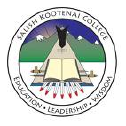What do they do?
Maintain highways, municipal and rural roads, airport runways, and rights-of-way. Duties include patching broken or eroded pavement and repairing guard rails, highway markers, and snow fences. May also mow or clear brush from along road, or plow snow from roadway.
Also known as:
Caltrans Equipment Operator, Equipment Operator (EO), Highway Maintainer, Highway Maintenance Crew Worker, Highway Maintenance Technician, Highway Maintenance Worker, Highway Worker, Maintenance Technician, Maintenance Worker, Material Handler, Materials Handling Equipment Operator, Traffic Control Specialist, Transportation Maintenance Operator, Transportation Maintenance Specialist (TMS), Transportation Worker
-
2.8%
Change
Ranks #48 in job growth rate750Job Openings
Ranks #8 in net job growth
-
State Technical College of Missouri
Linn, MO
-
Pittsburgh Institute of Aeronautics
West Mifflin, PA
-
SUNY College of Technology at Alfred
Alfred, NY
-
Pennsylvania College of Technology
Williamsport, PA
-
Putnam Career and Technical Center
Eleanor, WV
Looking for colleges that offer a specific major? Use the College Match Tool to find your best-matched schools and discover your estimated Net Price!
- Doctorate or Professional Degree (<1%)
- Master's degree (1%)
- Bachelor's degree (4%)
- Associate's degree (7%)
- Some college, no degree (25%)
- High school diploma equivalent (53%)
- Less than high school diploma (10%)
People in this career often know a lot about:
- Public Safety and Security - Knowledge of relevant equipment, policies, procedures, and strategies to promote effective local, state, or national security operations for the protection of people, data, property, and institutions.
- English Language - Knowledge of the structure and content of the English language including the meaning and spelling of words, rules of composition, and grammar.
People in this career often have talent in:
- Control Precision - The ability to quickly and repeatedly adjust the controls of a machine or a vehicle to exact positions.
- Multilimb Coordination - The ability to coordinate two or more limbs (for example, two arms, two legs, or one leg and one arm) while sitting, standing, or lying down. It does not involve performing the activities while the whole body is in motion.
- Oral Comprehension - The ability to listen to and understand information and ideas presented through spoken words and sentences.
- Problem Sensitivity - The ability to tell when something is wrong or is likely to go wrong. It does not involve solving the problem, only recognizing that there is a problem.
- Arm-Hand Steadiness - The ability to keep your hand and arm steady while moving your arm or while holding your arm and hand in one position.
- Static Strength - The ability to exert maximum muscle force to lift, push, pull, or carry objects.
People in this career often do these activities:
- Direct vehicle traffic.
- Maintain mechanical equipment.
- Drive trucks or truck-mounted equipment.
- Install fencing or other barriers.
- Remove debris or vegetation from work sites.
- Operate equipment or vehicles to clear construction sites or move materials.
- Spread sand, dirt or other loose materials onto surfaces.
- Move construction or extraction materials to locations where they are needed.
- Inspect industrial or commercial equipment to ensure proper operation.
- Clean equipment or facilities.
- Maintain plumbing structures or fixtures.
- Pour materials into or on designated areas.
- Compact materials to create level bases.
- Spread concrete or other aggregate mixtures.
- Treat greenery or surfaces with protective substances.
- Measure work site dimensions.
- Mark reference points on construction materials.
- Apply paint to surfaces.
- Operate road-surfacing equipment.
- Inspect completed work to ensure proper installation.
- Dismantle equipment or temporary structures.
- Mix substances or compounds needed for work activities.
This page includes data from:

 Occupation statistics: USDOL U.S. Bureau of Labor Statistics Occupational Employment Statistics
Occupation statistics: USDOL U.S. Bureau of Labor Statistics Occupational Employment Statistics








